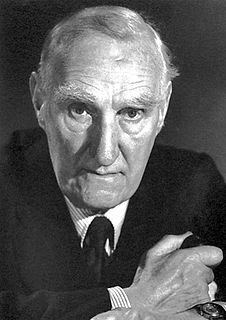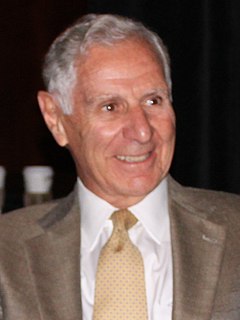A Quote by Thomas Malthus
The world's population will multiply more rapidly than the available food supply.
Related Quotes
Anybody interested in solving, rather than profiting from, the problems of food production and distribution will see that in the long run the safest food supply is a local food supply, not a supply that is dependent on a global economy. Nations and regions within nations must be left free and should be encouraged to develop the local food economies that best suit local needs and local conditions.
At the beginning of World War II the U.S. had a mere 600 or so first-class fighting aircraft. We rapidly overcame this short supply by turning out more than 90,000 planes a year. The question at the start of World War II was: Do we have enough funds to produce the required implements of war? The answer was No, we did not have enough money, nor did we have enough gold; but we did have more than enough resources. It was the available resources that enabled the US to achieve the high production and efficiency required to win the war. Unfortunately this is only considered in times of war.
I now say that the world has the technology - either available or well advanced in the research pipeline - to feed on a sustainable basis a population of 10 billion people. The more pertinent question today is whether farmers and ranchers will be permitted to use this new technology? While the affluent nations can certainly afford to adopt ultra low-risk positions, and pay more for food produced by the so-called "organic" methods, the one billion chronically undernourished people of the low income, food-deficit nations cannot.
More than a billion women around the world want to emulate western women's lifestyles and are rapidly acquiring the material ability to do so. It is therefore vital that in our leadership we display some reserve and responsibility in our spending so that the world's finite resources will be available for our children, their children and their children's children
U.S. labor leaders will realize that automation can multiply man's wealth far more rapidly than it is multiplying at present and that automation will leave all men free to search and research... Realizing the direct competition with foreign industry on a straight labor basis will mean swiftly decreasing wages per hour and longer hours and decreasing buying power of the public.
Thanks to Barack Obama, America is for the first time aligning its values with those of 'the majority of the world's population.' If you think the world's population has had better values than America, that is has made societies that are more open, free, and tolerant than American society, and that is has fought for others' liberty more than America has, you should be delighted.
Humans have changed ecosystems more rapidly and extensively than in any comparable period of time in human history, largely to meet rapidly growing demands for food, fresh water, timber, fiber and fuel. This has resulted in a substantial and largely irreversible loss in the diversity of life on Earth.
The people who benefit from this state of affairs have been at pains to convince us that the agricultural practices and policies that have almost annihilated the farming population have greatly benefited the population of food consumers. But more and more consumers are now becoming aware that our supposed abundance of cheap and healthful food is to a considerable extent illusory.



































